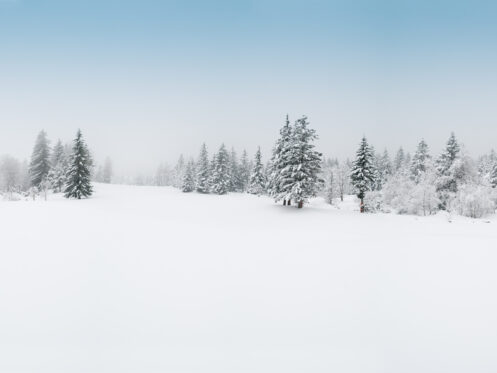When the colder months are on their way, it is important to ask yourself if you are prepared. One of the most important things you can do ahead of time is to make sure that your HVAC system is running properly. Failing to do so could cause you to run your system less efficiently, which could lead to astronomical utility bills. There is also the chance for equipment failure, which would leave you and your loved ones susceptible to the cold. It could also necessitate costly repairs.
In order to make sure that you have your HVAC unit prepared for winter, here is a handy checklist.
1. Get Your Furnace Tuned-Up
Maintenance is a fundamental part of ensuring safe, reliable, and efficient heating throughout the winter. Contact an HVAC professional for a routine maintenance check on your heating system. This should be done in the summer or fall, ahead of when you will actually need to use your equipment.
2. Change Your Air Filters
The air filters in your HVAC system should be replaced anywhere from monthly to annually, depending on the type. When your filters are dirty, they cannot properly do their job. If you have not changed your filter recently, do so. In the winter months, heating systems are used heavily, so it is typical for a filter to fill up faster. Check the filters monthly so that you can know if a new one is needed.
3. Prep Your Humidifier
Many homeowners have whole-home humidifiers that are installed as part of their HVAC systems. These require annual maintenance. Should the humidifier malfunction, your house may not get enough moisture or too much of it. Prepping your humidifier involves changing the water panel, cleaning the humidifier’s water reservoir, wiping down components like the exterior housing and the intake vent, inspecting the drain line for leaks, and making sure that the equipment turns on.
4. Clean Around the Furnace
Make sure that the area around the furnace is completely free of debris. Also, check to see if there is anything that could block its airflow. Move any items that are flammable at least six feet away from the furnace.
5. Reprogram the Thermostat
Reprogram your thermostat so that its programmed settings are right for the winter. Be sure that the settings you choose are energy-efficient but also comfortable. For when no one will be home, set the temperature 10 to 15 degrees lower to save money. Set your fan setting to “Auto.” This allows the blower to run only during a heating cycle.
6. Winterize Your Outdoor Equipment
Get your outdoor HVAC equipment ready for the winter by clearing away any debris and cleaning off the exterior of the unit. Make sure that the unit has at least two feet of clearance around it. Clean any gutters that are overhead that might leak on the system.
7. Bleed the Radiator Valves
If you have a boiler heating system that utilizes hot water radiators, you will need to bleed the valves on the radiators ahead of running your heating system. Doing so will move any trapped air out, allowing the system to heat more efficiently.
8. Clean and Clear Vents
Make sure that all of your vents are open and unobstructed for efficient airflow.
9. Inspect the Ductwork
Ahead of the heating season, inspect your HVAC ducts. Make sure they are well-sealed so that there are no leaks. Leakage from ducts can actually account for 20% to 30% of heat loss.
10. Take Your Heating System for a Test Spin
Test out your heating system before the cold weather hits. Firing up the unit allows you to verify that it is performing correctly and gives you the peace of mind that it will come on when it is needed. It is recommended that you test it out three times before you actually need it. Issues might not come up the first time you turn it on, so testing it three times gives you a fuller idea of what is happening with the equipment.
11. Perform a Sound Check
Listen closely when you take your system for a test run. Make note of any unusual sounds that you hear, and let a professional know about them immediately. Sounds to look out for include persistent clicking, which could mean an issue with the ignitor or dirty or worn bearings. A loud bang could be from built-up gas in the combustion chamber finally lighting. Rattling can come from components that have come loose.
12. Perform a Smell Check
See if you notice any unusual smells. If there is a burning smell, there could be some debris in the system that will usually burn off after a few minutes to a few hours. If the smell does not dissipate, let a professional know. This is especially important if it smells like plastic burning, which could indicate a wiring issue.
13. Check the Motor Belt
With the power to your system turned off, inspect the belt for any wear. Pay attention to any cracks or fraying. Also, make sure that the belt is at its proper tension. There should not be more than half an inch of give in any direction, and it can be tightened via the motor belt adjustment.
14. Inspect the Condensate Drainage System
Condensate draining systems are present in high-efficiency condensing furnaces. These allow the condensation that accumulates during normal operation to exit the system, avoiding water damage and issues with performance. Clogs can also lead to moisture building up within the drain line, potentially causing damage from freezing over during the winter. Make sure that the condensate drain system is working properly ahead of winter. You can do this by checking the drip pan after your heating system test. Verify that water has exited the system correctly and is not accumulating in the pan.
15. Check Your Fuel Supply
If your home uses heating oil or liquid propane to power the furnace, make sure that you have an adequate amount of fuel available.
16. Increase Insulation
Consider increasing the insulation levels in your attic, under the floors, and within your ducts to minimize heat loss throughout the winter.
17. Adjust Ceiling Fans
Set your ceiling fans to rotate clockwise so that warm air is not pooled at the ceiling. By having your ceiling fans set to redistribute warm air downward, you can maximize the efficiency of your HVAC system during the winter.
Have a Professional Help You Prepare for the Winter
If you are in Wheat Ridge, CO or the surrounding area, have Mighty Pine Heating & Air help you get your HVAC unit ready for winter. One of our professional technicians can do a routine maintenance inspection of your system to make sure everything is operating as it should be. They can also go over everything on your checklist with you so that no stone is left unturned.
Mighty Pine Heating & Air is a small, family-owned and -operated HVAC company that serves Wheat Ridge, Arvada, and the Denver metropolitan area. Our priority is to provide you with honest, affordable, and reliable service for all of your heating, cooling, and electrical needs. If you’re ready to get your HVAC system prepared for the winter, give Mighty Pine Heating & Air a call today.



